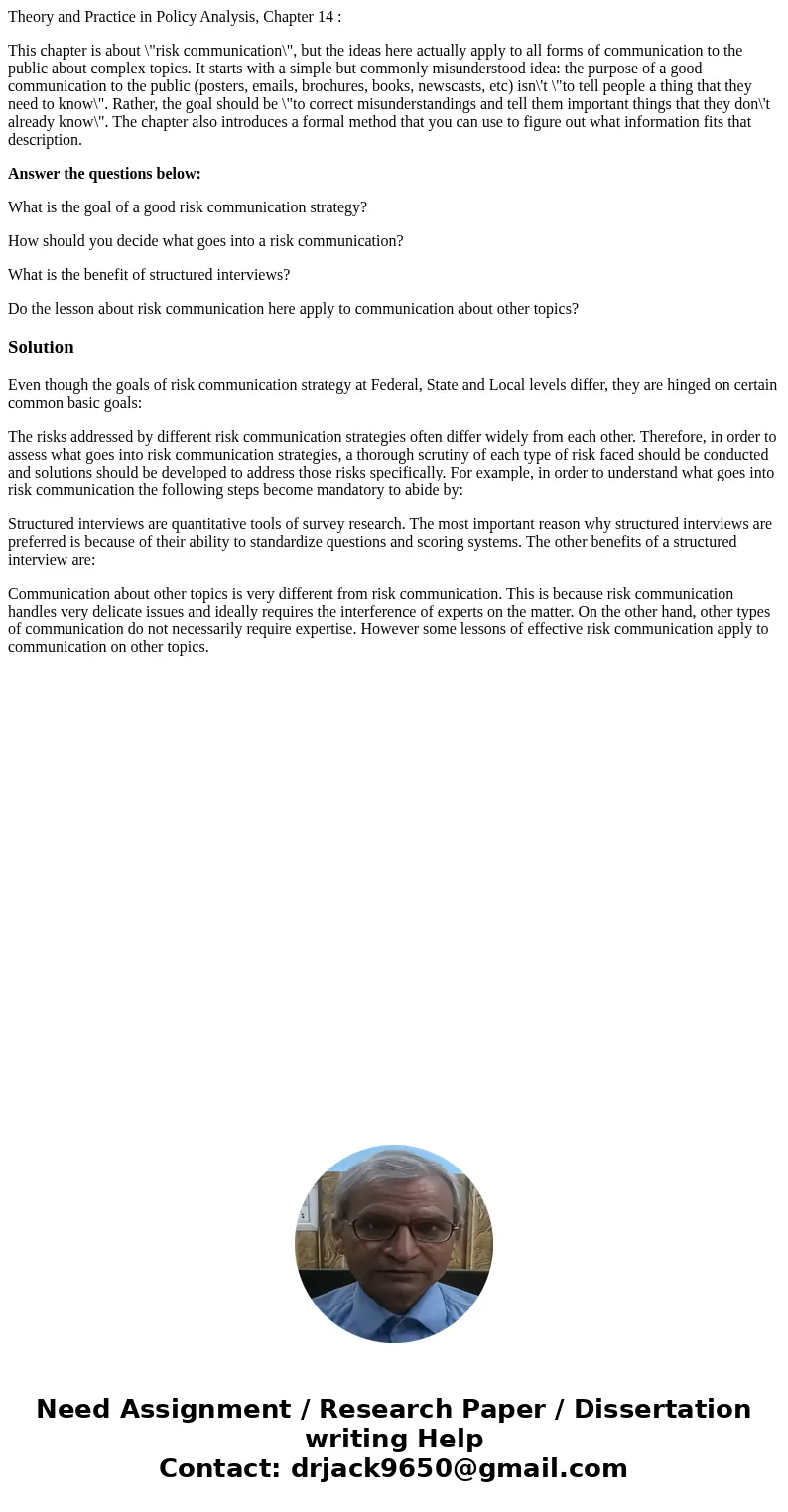Theory and Practice in Policy Analysis Chapter 14 This chap
Theory and Practice in Policy Analysis, Chapter 14 :
This chapter is about \"risk communication\", but the ideas here actually apply to all forms of communication to the public about complex topics. It starts with a simple but commonly misunderstood idea: the purpose of a good communication to the public (posters, emails, brochures, books, newscasts, etc) isn\'t \"to tell people a thing that they need to know\". Rather, the goal should be \"to correct misunderstandings and tell them important things that they don\'t already know\". The chapter also introduces a formal method that you can use to figure out what information fits that description.
Answer the questions below:
What is the goal of a good risk communication strategy?
How should you decide what goes into a risk communication?
What is the benefit of structured interviews?
Do the lesson about risk communication here apply to communication about other topics?
Solution
Even though the goals of risk communication strategy at Federal, State and Local levels differ, they are hinged on certain common basic goals:
The risks addressed by different risk communication strategies often differ widely from each other. Therefore, in order to assess what goes into risk communication strategies, a thorough scrutiny of each type of risk faced should be conducted and solutions should be developed to address those risks specifically. For example, in order to understand what goes into risk communication the following steps become mandatory to abide by:
Structured interviews are quantitative tools of survey research. The most important reason why structured interviews are preferred is because of their ability to standardize questions and scoring systems. The other benefits of a structured interview are:
Communication about other topics is very different from risk communication. This is because risk communication handles very delicate issues and ideally requires the interference of experts on the matter. On the other hand, other types of communication do not necessarily require expertise. However some lessons of effective risk communication apply to communication on other topics.

 Homework Sourse
Homework Sourse